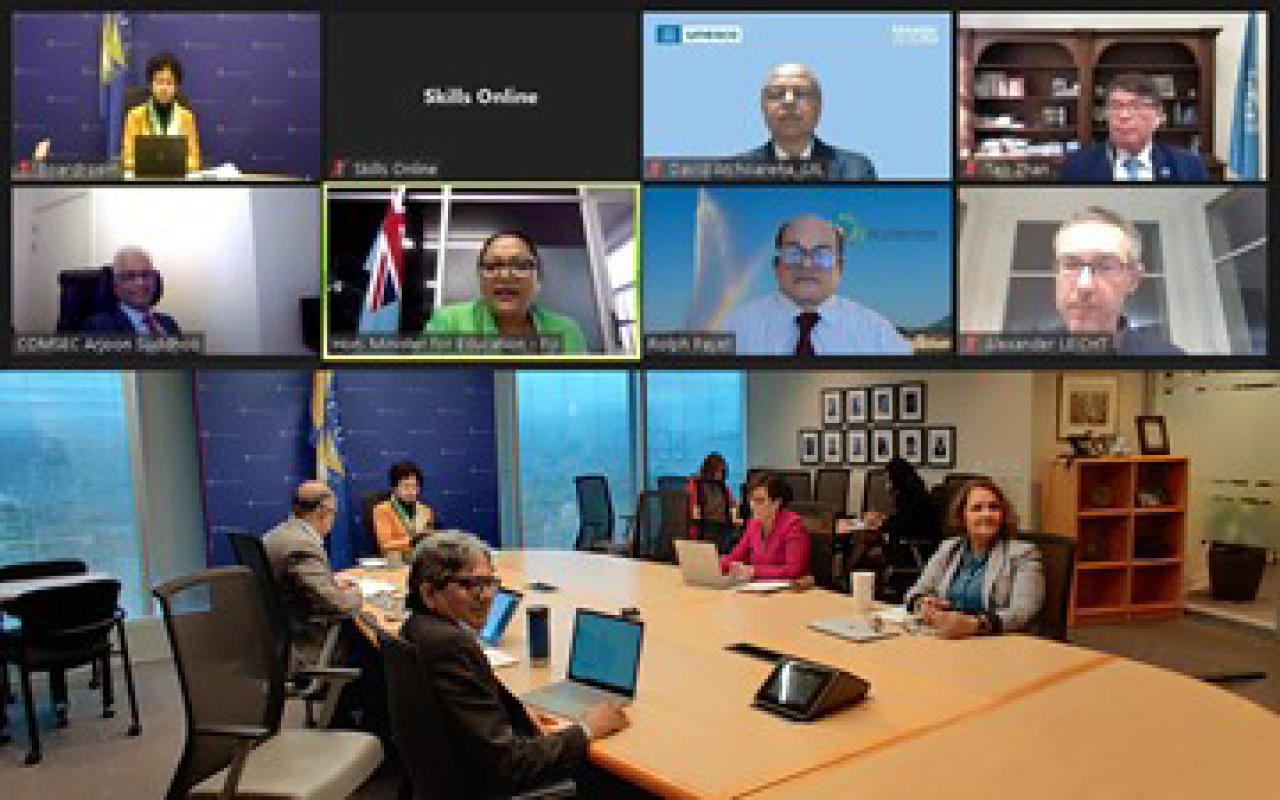
How can the education sector address the issue of climate change? How can teachers instill an understanding of its main causes and consequences in their students? COL has set up a high-level panel to identify a roadmap for building resilient education and skill training systems fostering environmental conservation across the Commonwealth. The panel is chaired by Dr Rolph Payet, Executive Secretary, Secretariat of the Basel, Rotterdam, and Stockholm Conventions, United Nations Environment Programme.
The inaugural meeting was held online, with COL President joined by the Honourable Lady Howard Mabuza, Minister of Education & Training, eSwatini; the Honourable Ms Premila Kumar, Minister of Education, National Heritage & Arts, Fiji; Dr Arjoon Suddhoo, Deputy Secretary General, Commonwealth Secretariat; Mr Alexander Leicht, Chief, Section of Education for Sustainable Development, Education Sector UNESCO; Dr David Atchoarena, Director, UNESCO Institute of Lifelong Learning; Mr Tao Zhan, Director, UNESCO Institute for Information Technologies in Education. The Honourable Mr Evarist Bartolo, Minister for Foreign & European Affairs, Malta, sent a welcome video message.
Teachers are key stakeholders and teacher training will be essential to mitigate the impacts of climate change. This was the core message from the ministers of education. They identified behavioural change as the important driver of all actions aimed at mitigation. Education and training would be the sources of such a change. In addition, the ministers highlighted the role that youth must play a role in co-creating materials for climate change education (CCE). They also stressed the importance of building infrastructure quickly to promote online and lifelong learning.
Presenting an overview of COL’s activities with relation to climate change, Professor Asha Kanwar, noted that COL’s Green Teacher programme was a pioneer in this regard and there are plans to strengthen and scale it through a consultative process in support of CCE. She also mentioned the possibility of a climate change education campus in partnership with a global provider of MOOCs.
While recommending how distance education and technologies can be harnessed appropriately to mitigate the carbon footprint of education and training, the panel will identify concrete actions in education and training that will contribute to awareness raising and strategies for developing policies and building capacities to promote environmental conservation; advise on changes to school, college and university curricula needed to urgently address the issues climate change; highlight opportunities for research and collaboration; and focus on building resilience in the small island developing states.
Key recommendations will be presented to the Commonwealth Ministers of Education at the 22nd meeting to be held in Nairobi, Kenya, in 2022.


